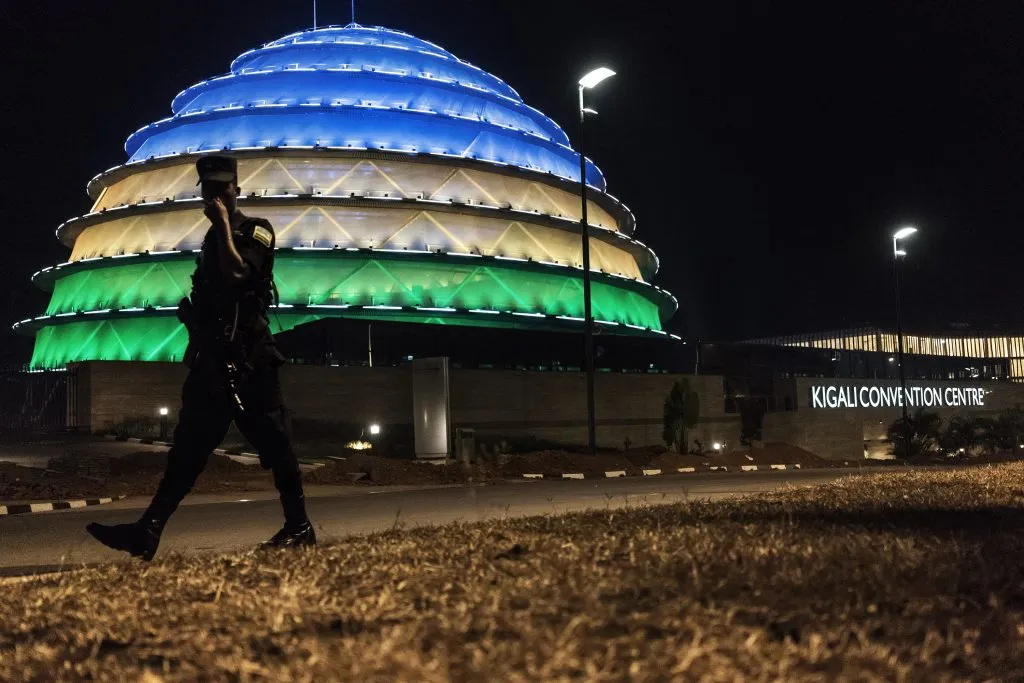At the start of April, the Global AI Summit on Africa took place in Kigali. The event was hosted by Rwanda’s Centre for the Fourth Industrial Revolution (C4IR) and the Ministry of ICT and Innovation, in collaboration with the World Economic Forum.
After the global Artificial Intelligence Action Summit, held in Paris in February, this Africa-specific event was billed as an opportunity for the continent to start hammering out its own approach to critical policy issues.
Bringing together heads of government, business leaders, investors, and international organisations from across the continent, the summit sought to make tangible progress on “shaping Africa’s role in the global AI economy.”
The event was also seen as a sign that African governments and organisations are determined to forge a path forward for the continent that manages the risks associated with this new technology – while also seizing its potentially transformative potential across strategic sectors such as health, agriculture, and finance.
Bilal Mateen, chief AI officer at London-based healthcare firm PATH and summit attendee, tells African Business that “no individual event is going to solve all the problems, but we require these kinds of convenings to keep up the momentum and energy.”
Symbolically important
He adds that the symbolism of an Africa-specific summit was critical, especially given the conversation around AI has often been dominated by the established economic powers.
“Seeing the baton pass move over to the African continent, seeing a bunch of continental leaders talk about the opportunity and how to get there, was very important,” Mateen says. “There are only so many summits that we can have among the G7 countries before you ask: what about the rest of the world?”
While the summit was symbolically important for this reason, there was also a flurry of announcements before, during, and after the Global AI Summit on Africa – raising hopes that the continent is starting to move beyond discussion and towards practical action when it comes to harnessing AI.
Indeed, shortly prior to the event, Zimbabwean telecoms tycoon Strive Masiyiwa announced that the company which he founded, Cassava Technologies, had partnered with US tech giant Nvidia to build Africa’s “first AI factory.”
Cassava said it would deploy Nvidia’s accelerated computing and AI software at its data centres in South Africa by June of this year, before expanding this to other data centres in Egypt, Kenya, Morocco, and Nigeria.
The move is significant as Africa’s AI efforts have so far been hampered by a lack of affordable and effective computing resources. AI systems tend to be extremely power-hungry and therefore expensive – raising questions as to whether many African countries have the infrastructural or economic capacity to invest in AI technology.
Infrastructure gaps still apparent
Menzi Ndhlovu, a senior political and economic analyst at the Signal Risk consultancy in Cape Town, asks “does Africa have the capacity to focus on AI, given the fact we are still dealing with basic things such as having sufficient telephone infrastructure and electric infrastructure?
“Before we can start talking about AI and all these grand technical plans, we need to deal with developmental and basic infrastructure problems.”
Darlington Akogo, founder and CEO at minoHealth AI Labs in Accra, who also travelled to Kigali for the summit, notes that “the computing issue was identified as the biggest challenge for Africa.”
However, he was encouraged that the partnership announced between Cassava and Nvidia demonstrates how “solutions to this problem have started to materialise.” Mateen also says that the move shows “we are finally making real, tangible progress towards addressing the computing capacity on the continent.”
Investment unveiled
There were over investment announcements aimed at overcoming Africa’s infrastructure challenges. Rwanda’s Minister of ICT and Innovation, Paula Ingabire, signed a memorandum of understanding with Trevel Mundel, president of global health at the Bill & Melinda Gates Foundation, to establish the “Rwanda Artificial Intelligence Scaling Hub.”

Backed with $7.5m over three years from the Gates Foundation, the AI Scaling Hub is intended to serve as a regional centre for AI innovation, tasked with finding innovative ways to scale Africa-specific AI solutions in critical sectors such as healthcare, agriculture, and education.
When announcing the MoU in Kigali, Mundel emphasised that the partnership is intended to overcome the barriers that exist to AI adoption in Africa and help the technology reach the communities which need it the most – something which could then serve as a model for other governments and international organisations.
The Mastercard Foundation also announced its support for inclusive digital tools such as Deafcantalk, an AI-powered smartphone app enabling those with hearing disabilities to communicate in real-time, with the similar aim of showing how AI can be scaled in Africa for social and economic good.
Akogo says the summit was a success in terms of attracting “investment from the developmental funds” but suggests that more work is required if Africa wishes to attract capital from global venture capital funds.
He notes that he “met a few VCs at the conference and they were very much actively looking for things to invest in” but believes that they are sometimes deterred by the high cost of running AI initiatives in Africa as this further complicates start-ups’ route to profitability. “African deals tend to be on the much lower end of ticket sizes which suggests we are not making ourselves globally competitive,” Akogo tells African Business.
The Global AI Summit on Africa also made progress on addressing the disparities in existing AI technology. AI tools are “trained” to make decisions based on datasets, but information sources from African countries and individuals currently makes up a tiny proportion of the data being used in these systems.
This means that AI tools are often limited in their ability to process local African languages, for example, or can offer insights that are prejudicial or harmful in an African context.
Chenayi Mutambasere, development economist at the Africa Centre for Economic Justice, tells African Business that she was pleased to see Google’s managing director for Africa, Alex Okosi, “highlight their commitment to advancing the African AI revolution by building robust datasets in African languages.”
“This is a critical step towards ensuring that AI technologies are inclusive, contextually relevant, and accessible to communities across the continent,” she adds. However, Mutambasere believes that further action is required on the part of regulators.
“There is an urgent need to establish a comprehensive framework for data governance in Africa – data should be recognised not just as a technical input, but as a vital economic asset,” Mutambasere says. “As the continent accelerates its AI ambitions, there is a real risk that, without proper stewardship, the intrinsic value of African data could be overlooked or diluted.”
Declaration on AI
The event culminated with delegates signing “the Africa Declaration on Artificial Intelligence” – outlining commitments on the part of continental leaders to support the adoption of national AI strategies and to implement governance frameworks that align with the African Union’s own AI strategy.
It is hoped that this rhetoric will also be backed by hard cash: a resolution was passed establishing a $60bn fund to build a pan-African AI ecosystem.
Mutambasere believes that “the summit successfully positioned Africa as a critical player in the global AI conversation and highlighted the continent’s unique demographic and economic opportunities that make it a vital part of global economic development over the next 25 years.”
Akogo similarly welcomes the moves made in Kigali which have at least set Africa on the road towards harnessing the potential of AI for the continent – and forging its own solutions for its own, specific issues.
“The event served as a reminder to the rest of the world that Africa is very much present within the AI landscape,” he says.
Crédito: Link de origem


